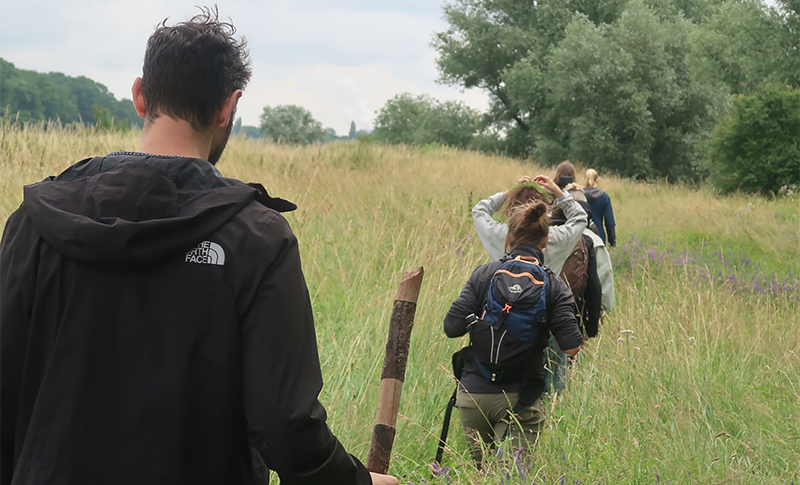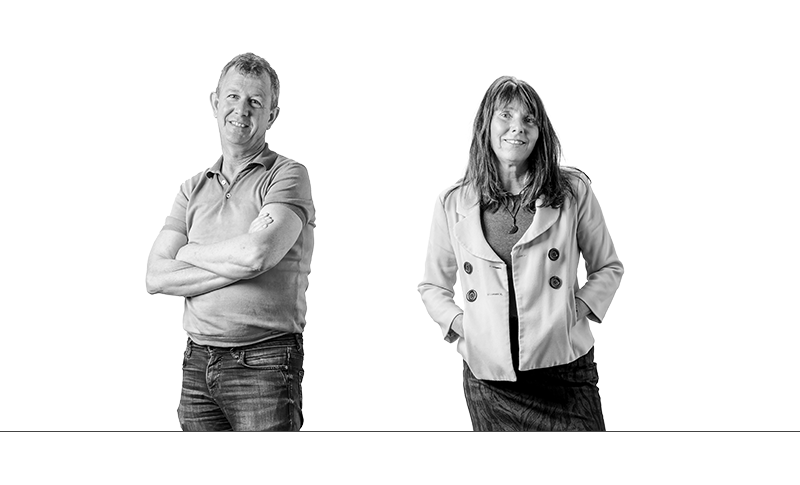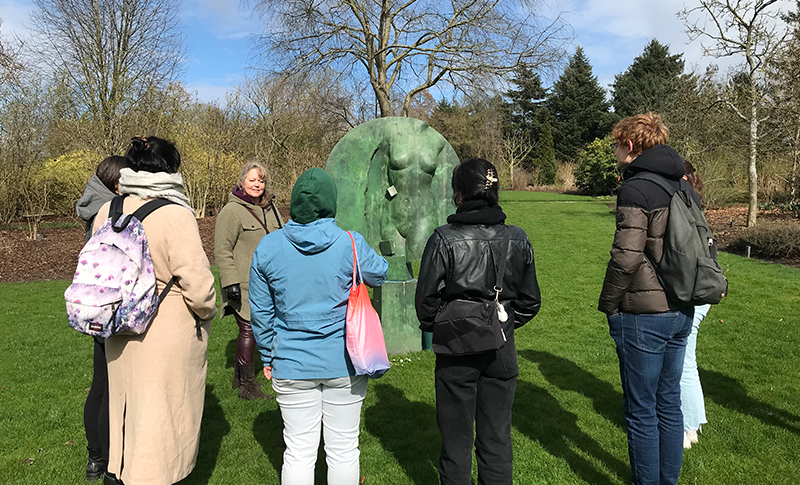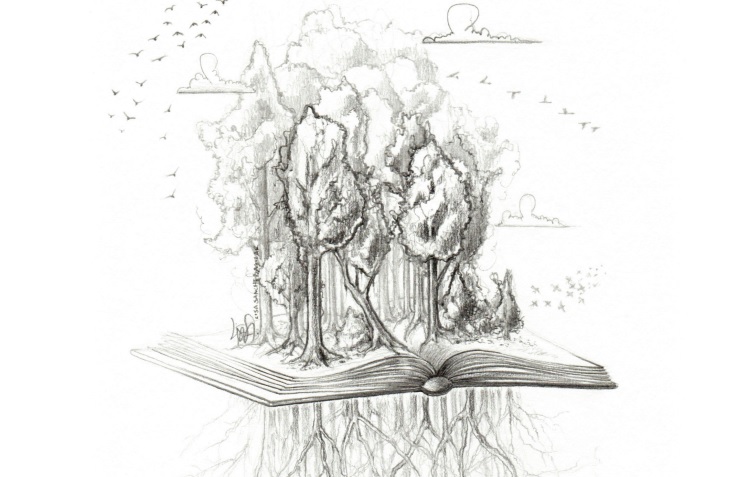Real sustainability comes from feeling a connection with the environment. And that feeling can be trained.
Sustainability often seems to be about technology. We come up with smart solutions that spare the environment, cut the use of raw materials or reduce CO₂ emissions. The internal, emotional side of the concept is rarely discussed, says Louise van der Stok. ‘It is seldom about your personal connection with the world, or how you can stay inspired during these troubling times.’ That gap is being addressed by the new course Exploring Regenerative Cultures for Sustainability, which she developed together with Lian Kasper.
The course has actually been going for four years. Every year in June, student organization OtherWise runs a training camp on the site of the former Pieter Pauw hospital. The programme lasts one week and participants camp on the grounds of the local squatters’ collective. The week is all about self-discovery and the essence of feeling a connection with nature. Thanks to collaboration with Education and Learning Sciences (ELS), the course became part of the official WUR curriculum for the first time this year.
Metres
But what is that connection exactly? Van der Stok, freelance teacher and Forest & Nature Conservation alumnus, gives a cautious explanation. ‘It’s a state of awareness. For me, the connection is a feeling. It feels good, it feels alive. You get a sense of fulfilment, of being part of nature.’ That feeling is investigated with the help of specific exercises.
‘One of the first things we do is run through the history of the Earth,’ says Van der Stok. ‘We walk a 4.6 kilometre route from the camp to the Rhine. Each step of one metre represents one million years in the history of the Earth. As we walk, we explain that history. That gives you an awareness of time.
Part of our lack of sustainability is due to a lack of self-respect
For example, it seems to take for ever to get to the first single-celled organism. And we only get humans in the final metres. It’s ridiculous! That puts it all into perspective. The course participants know that history of course, but the exercise makes them feel it too.’
Another example. ‘One evening, we get the participants to make a kasàlà,’ says Van der Stok. ‘That is an African tradition in which you write an ode, a poem praising yourself. That’s nice but it also feels uncomfortable. You have to describe yourself in exaggerated lyric language. You can pull out all the stops. It’s so funny to see what this does with people. It really opens things up.’ Of course there is a deeper rationale too. ‘Part of our lack of sustainability is due to a lack of self-respect,’ explains Van der Stok. ‘You need to feel that you are worthwhile, that you are beautiful, just like nature. We often admire the beauty of nature, but as living creatures we too are part of nature. That awareness encourages a positive attitude to the world.’
Self-discovery is an important aspect of the training course. That can take the form of introspection using the truth mandala. Van der Stok: ‘That is a ritual in which you express your pain using four tangible objects. We sit in a circle and we take it in turns to pick up an object and say what makes us feel angry, sad, afraid or powerless. For example that species are becoming extinct, or that you don’t know whether you can have children because you don’t know what the future will look like. We do try to stick to the topic of connecting with nature because it’s not supposed to be about airing personal traumas.’
Pain and passion
The catharsis comes in the second part of the exercise. ‘The pain is good,’ says Van der Stok. ‘Anger means passion and sadness means love. So then we turn things around: everyone picks up the same objects and they have to say what they feel passionate about, love and so on. That’s an important moment in the week because it gives people strength. For many people it is the first time they have opened up about the situation with the planet.’
An important feature of the course is having more profound experiences of nature. ‘So we do exercises that help people to be still,’ says Van der Stok. ‘Such as games where you probe the boundary between human and animal. You learn how to move through the forest like an animal. That transforms your state of being, and the forest immediately feels quite different.’ That is followed by a day among sand drifts. You spend the entire day alone, preferably without food or drink, guided by your instinct and mulling on a question you set for yourself beforehand. ‘In the evening, around the camp fire, everyone talks about their day and the insights they gained.’
A new element this year is the final assignment: an essay in which you reflect on your experiences and what they mean for the transition to sustainability. After all, it is a university course.

 This course is about learning to feel a connection with nature. The photo shows one of the course activities.
This course is about learning to feel a connection with nature. The photo shows one of the course activities. 

